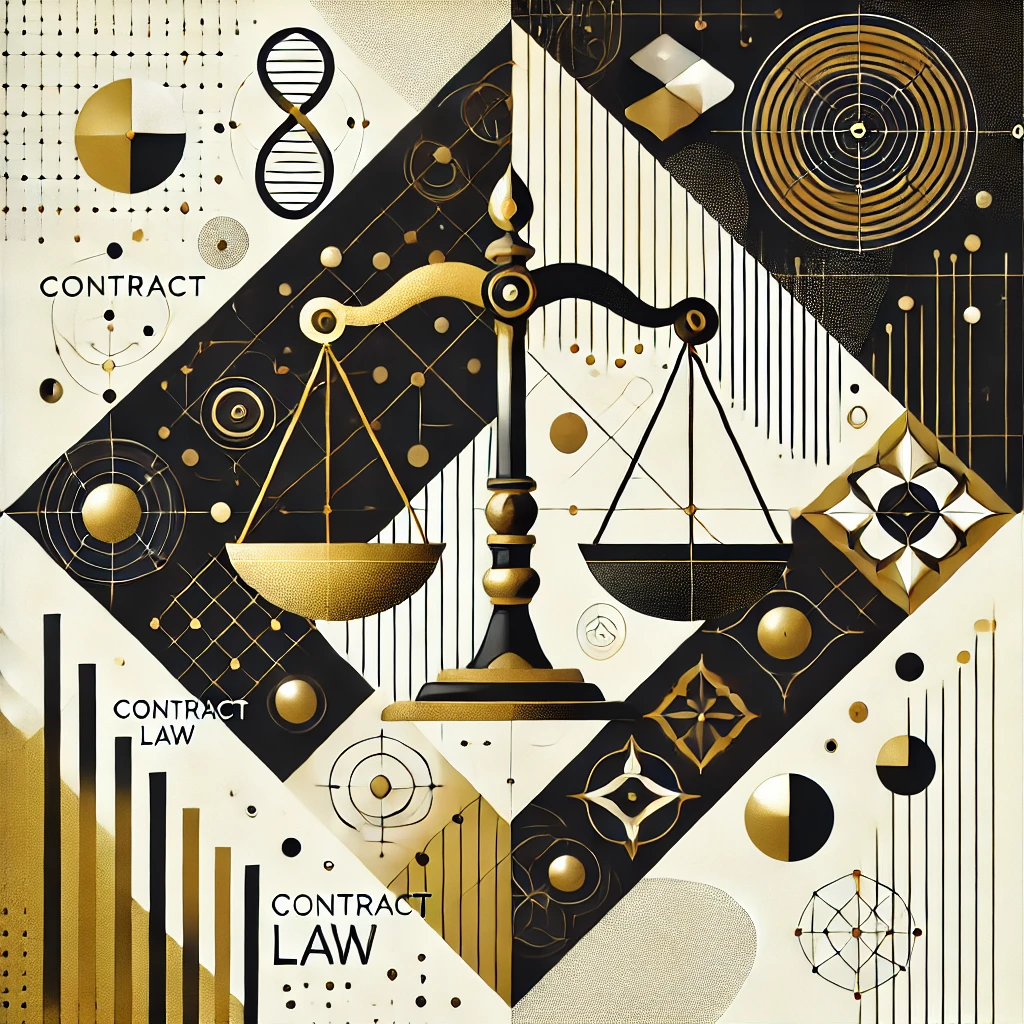
A Comprehensive Guide to Contract Law in Bahrain
Contract Law in Bahrain is a fundamental aspect of the legal landscape that governs agreements between individuals and businesses. Whether it is a commercial contract, an employment agreement, or a property transaction, understanding contract laws in Bahrain is crucial to ensuring that parties fulfill their obligations and protect their interests. This guide aims to provide a detailed overview of contract law in Bahrain, covering the essential components of contracts, different types of contracts, remedies for breaches, and frequently asked questions.

Contract law is the foundation of commercial transactions, employment relationships, and many other legal agreements in Bahrain. It is designed to ensure that agreements are enforceable and that all parties adhere to their obligations. Contracts form the basis of trust between parties and provide a clear framework for the exchange of goods, services, or value.
Legal Framework Governing Contract Law in Bahrain
The legal framework for contract law in Bahrain is primarily governed by the Bahraini Civil Code, which outlines the rules and regulations that parties must follow when entering into contracts. The Bahraini Civil Code provides clarity on what constitutes a valid contract and the consequences of failing to comply with contractual obligations.
Key elements of a valid contract under Bahraini law include:
- Offer and Acceptance: There must be a clear offer by one party and acceptance by the other.
- Consideration: There must be something of value exchanged between the parties.
- Intention to Create Legal Relations: The parties must intend for the contract to be legally binding.
- Capacity to Contract: Parties must have the legal capacity to enter into a contract, meaning they must be of sound mind and of legal age.
- Legality of Purpose: The contract must have a lawful purpose.
Types of Contracts in Bahrain
1. Commercial Contracts
Commercial contracts are agreements between businesses to facilitate trade, services, or supply of goods. These contracts are critical for maintaining business relationships and often include sales agreements, partnership contracts, and franchise agreements.
2. Employment Contracts
Employment contracts outline the rights and obligations of employers and employees. They include terms related to wages, working hours, job responsibilities, and other conditions of employment. Bahraini labor law governs these contracts to protect both parties’ rights.
3. Property Contracts
Property contracts involve transactions related to the sale, lease, or rental of real estate. These contracts must comply with Bahraini property laws, ensuring that all terms are clearly defined and legally enforceable.
4. Service Contracts
Service contracts are agreements in which one party agrees to provide a service to another in exchange for payment. These contracts are common in sectors like construction, consulting, and IT services.
Elements of a Valid Contract
1. Offer and Acceptance
A contract is formed when one party makes an offer and the other accepts it. The offer must be clear, and the acceptance must be unconditional. If there are changes to the terms, it is considered a counteroffer rather than acceptance.
2. Consideration
Consideration refers to something of value exchanged between the parties. This can be money, services, or goods. In Bahrain, consideration is a vital element for a contract to be enforceable.
3. Intention to Create Legal Relations
For a contract to be valid, both parties must intend to create legal relations. This means that they are agreeing to be legally bound by the terms of the contract.
4. Capacity to Contract
Capacity means that the parties entering into the contract must be of sound mind, not under duress, and of legal age. Minors, for example, generally cannot enter into binding contracts unless it is for essential items.
5. Legality of Purpose
The purpose of the contract must be legal. Contracts for illegal activities are not enforceable under Bahraini law.

Formation of Contracts
Contracts in Bahrain can be written, oral, or electronic. While written contracts provide the most legal security, oral contracts can also be legally binding if sufficient evidence exists. Electronic contracts are becoming increasingly common and are recognized under Bahraini law, provided they meet certain criteria.
Contractual Obligations and Performance
1. Obligations of Parties
Each party in a contract has specific obligations they must fulfill. These obligations are defined in the contract and are enforceable by law. Failure to meet these obligations can result in a breach of contract.
2. Performance of Contracts
Performance refers to the fulfillment of contractual duties as agreed upon by the parties. Complete performance discharges the contract, while partial performance may lead to disputes or legal action.
3. Partial Performance and Remedies
If one party only partially performs their contractual obligations, the other party may seek remedies, such as compensation or specific performance.
Termination of Contracts
1. Mutual Agreement
Contracts can be terminated by mutual agreement if both parties consent to end the contract. This is often done when circumstances change, and both parties no longer wish to proceed.
2. Breach of Contract
A breach of contract occurs when one party fails to fulfill their obligations. Depending on the severity of the breach, the other party may be entitled to compensation or other remedies.
3. Termination by Law
Contracts can also be terminated by operation of law. This can happen in cases where the contract becomes impossible to perform or if it is deemed illegal.
Remedies for Breach of Contract
1. Damages
Damages are the most common remedy for a breach of contract. They are intended to compensate the injured party for any losses suffered as a result of the breach.
2. Specific Performance
In some cases, the court may order specific performance, which requires the breaching party to fulfill their contractual obligations.
3. Injunctions
Injunctions are court orders that prevent a party from taking certain actions that would breach the contract or cause harm to the other party.
4. Rescission
Rescission involves canceling the contract and restoring both parties to their pre-contractual positions. This remedy is typically used when there has been a fundamental breach of contract.
Key Differences Between Bahraini Contract Law and Common Law Jurisdictions

While contract law in Bahrain is influenced by civil law principles, it differs from common law jurisdictions in several key areas, including the role of good faith in contracts, the use of penalties, and the treatment of certain types of clauses.
Frequently Asked Questions About Contract Law in Bahrain
1. What makes a contract legally binding in Bahrain?
A contract is legally binding in Bahrain if it contains the essential elements, such as offer, acceptance, consideration, and intention to create legal relations. All parties must also have the capacity to contract.
2. Are oral contracts enforceable in Bahrain?
Yes, oral contracts are enforceable in Bahrain, provided there is sufficient evidence to prove the terms of the contract. However, written contracts are generally preferred for legal certainty.
3. How are damages calculated in the event of a breach?
Damages are calculated based on the losses suffered by the non-breaching party. The aim is to place them in the position they would have been in if the contract had been performed as agreed.
4. What are some common contractual disputes in Bahrain?
Common contractual disputes include breaches of commercial contracts, property disputes, and employment-related issues. These disputes are often resolved through litigation or alternative dispute resolution methods such as arbitration.
5. How can I terminate a contract legally in Bahrain?
A contract can be terminated legally in Bahrain by mutual agreement, breach of contract, or by operation of law. It is advisable to consult with a Contract Lawyer to understand the best course of action for termination.
6. Are foreign nationals allowed to enter contracts in Bahrain?
Yes, foreign nationals can enter into contracts in Bahrain. The Bahraini legal system allows both residents and non-residents to engage in contracts, provided they meet the legal requirements for capacity and the purpose of the contract is lawful.
7. What is the role of mediation and arbitration in contract disputes?
Mediation and arbitration are commonly used to resolve contract disputes in Bahrain. Mediation is a non-binding process that aims to help parties reach a mutual agreement, while arbitration is a binding process where an arbitrator makes a decision. Both methods are encouraged to avoid lengthy court proceedings.
8. Can a contract be modified after it has been signed?
Yes, contracts can be modified after they have been signed if both parties agree to the changes. It is important to document any modifications in writing and ensure that both parties sign the amended contract to make it legally binding.
9. What happens if a contract is found to be illegal?
If a contract is found to be illegal, it is considered void and unenforceable. Neither party can enforce the terms of an illegal contract, and both parties will generally be restored to their pre-contractual positions.
10. How can I enforce a contract in Bahrain?
To enforce a contract in Bahrain, the non-breaching party can file a lawsuit in the appropriate court. The court may award damages, order specific performance, or provide other remedies to ensure compliance with the contract.
Case Studies on Contract Law in Bahrain
Case Study 1: Breach of a Commercial Contract
In a recent case, a Bahraini company entered into a commercial contract with a foreign supplier to provide raw materials. The supplier failed to deliver the materials on time, leading to significant losses for the Bahraini company. The court awarded damages to compensate for the losses and ordered the supplier to fulfill their contractual obligations. This case highlights the importance of timely performance in commercial contracts and the remedies available for breaches.
Case Study 2: Property Lease Dispute
A property lease dispute arose when a tenant failed to pay rent for several months. The landlord sought specific performance to enforce the payment of rent and termination of the lease agreement. The court ruled in favor of the landlord, ordering the tenant to vacate the property and pay the outstanding rent. This case demonstrates the legal remedies available to landlords in the event of a breach of a lease agreement.
Case Study 3: Employment Contract Dispute
In an employment contract dispute, an employee claimed wrongful termination, arguing that the employer did not follow the terms outlined in the contract. The court found that the employer had breached the contract by failing to provide proper notice before termination. The employee was awarded compensation for lost wages and damages for emotional distress. This case underscores the importance of adhering to the terms of employment contracts and the potential consequences of wrongful termination.

Importance of Legal Advice in Contract Formation and Dispute Resolution
Engaging a qualified Contract Lawyer is crucial for ensuring that contracts are drafted correctly and that all parties’ rights are protected. A lawyer can help in:
- Drafting Contracts: Ensuring that all essential elements are included and that the contract is enforceable.
- Reviewing Contracts: Identifying potential risks and advising on terms that may be unfavorable.
- Negotiating Terms: Assisting in negotiations to ensure that the contract is fair and meets the needs of both parties.
- Dispute Resolution: Representing clients in disputes, whether through negotiation, mediation, arbitration, or litigation.
The Role of Alternative Dispute Resolution in Contract Law
Alternative Dispute Resolution (ADR) methods, such as mediation and arbitration, are often used to resolve contractual disputes without going to court. These methods are generally faster, more cost-effective, and less adversarial than traditional litigation.
Mediation
Mediation involves a neutral third party who helps the disputing parties reach a mutually agreeable solution. It is a non-binding process that allows for open communication and negotiation. Mediation is particularly useful in contract disputes where the parties wish to maintain a business relationship.
Arbitration
Arbitration is a more formal process in which an arbitrator hears the evidence and makes a binding decision. Arbitration is commonly used for commercial disputes in Bahrain due to its efficiency and confidentiality. The Bahraini Chamber for Dispute Resolution (BCDR) is a popular choice for arbitration in Bahrain.
The Appeals Process in Contract Disputes
If a party is dissatisfied with a court’s decision in a contract dispute, they may appeal the decision to a higher court. The appeals process involves reviewing the case for legal errors or procedural issues that may have impacted the outcome.
1. Filing an Appeal
The first step in the appeals process is to file a notice of appeal with the appropriate court. This must be done within a specific timeframe, usually 30 days from the date of the original judgment.
2. Review by the Court of Appeal
The Court of Appeal reviews the case to determine if there were any errors in the application of the law. The court may uphold, modify, or overturn the lower court’s decision based on its findings.
3. Final Appeal to the Court of Cassation
If either party is still dissatisfied after the Court of Appeal’s decision, they may take the case to the Court of Cassation, which is the highest court in Bahrain. The Court of Cassation only reviews cases on points of law, not on the facts of the case.
Conclusion
Contract law in Bahrain is a vital aspect of the legal system, providing a framework for individuals and businesses to enter into enforceable agreements. Whether you are dealing with a commercial, employment, or property contract, understanding the essential elements and remedies is crucial for protecting your rights.
For those facing contract-related issues, engaging an experienced Contract Lawyer can help ensure that your interests are protected and that any disputes are resolved effectively. If you need professional assistance with contract law in Bahrain, contact Alya Al Zeera Lawyer & Legal Services for expert legal support tailored to your needs.
